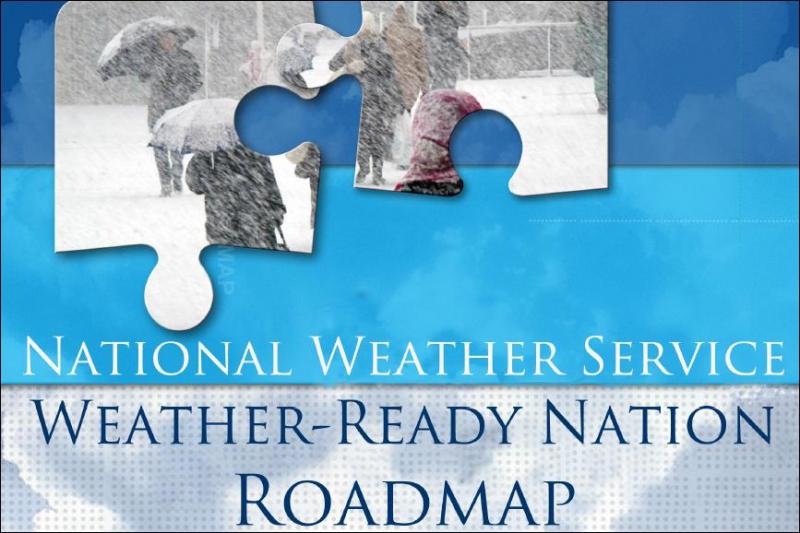
nws.noaa.gov - April 24, 2013
On April 24, 2013, NOAA’s National Weather Service, in partnership with the National Weather Service Employees Organization (NWSEO), released The Weather-Ready Nation Roadmap 2.0. The updated Roadmap blends an understanding of social and physical sciences and lends itself to building community resilience in the face of increasing vulnerability to extreme weather and water events. After achieving the goals of the Weather-Ready Nation Roadmap, NWS will empower emergency managers, first responders, government officials, businesses, and the public to make faster, smarter decisions to save lives and protect livelihoods.
“The NWS recognizes that issuing excellent forecasts and warnings may not always be enough to save lives,” said NWS Director Louis W. Uccellini. “The Weather-Ready Nation initiative is first and foremost to save lives and protecting livelihoods by providing useful, relevant, actionable information on for critical decision support services.”
Recent Comments